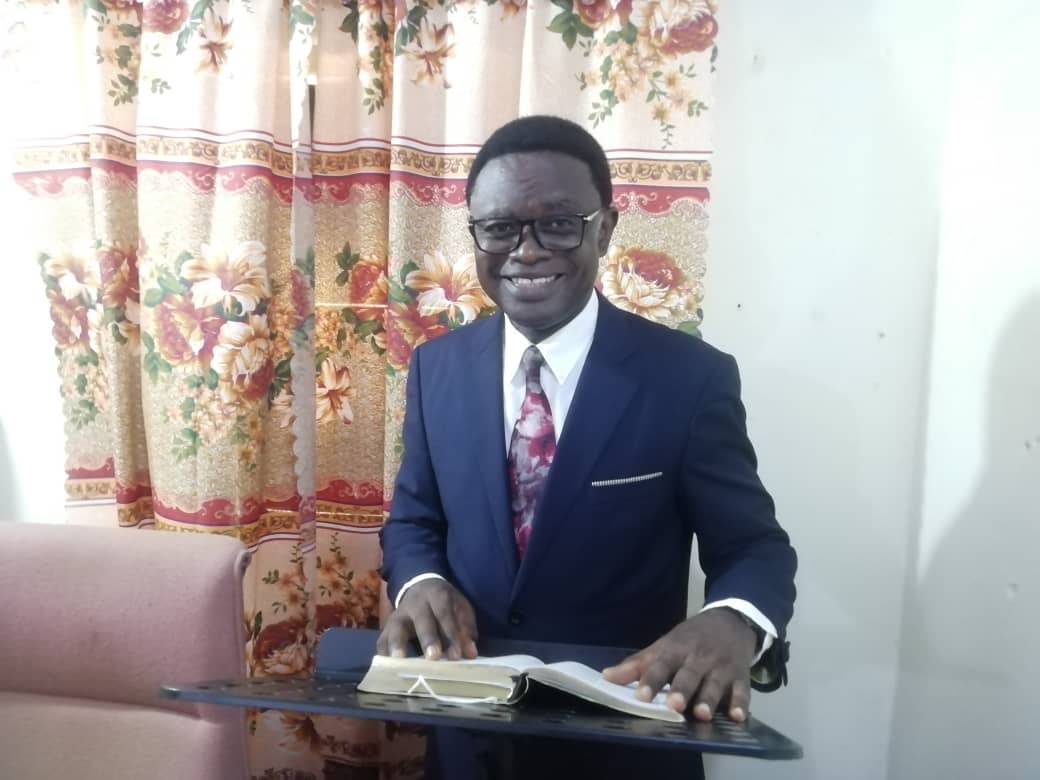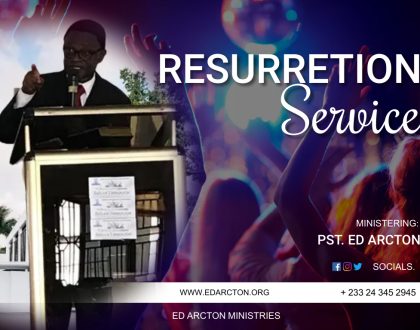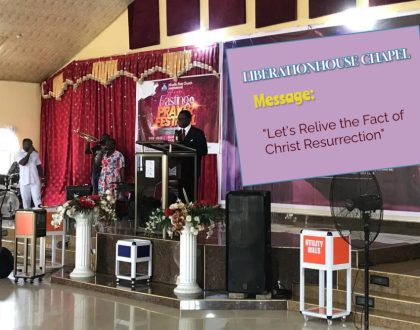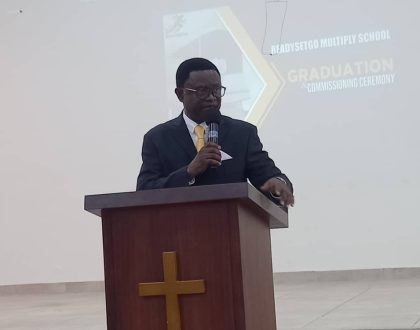Moses was Sustained by a Vision

Moses was sustained by a vision of things that are to Be
Moses is probably the most important person in the Hebrew Bible. Moses is, “the first and preeminent leader of the Israelites, who led the people out of Egypt to the threshold of the Promised Land; he is also the lawgiver and the archetypical prophet. He is the dominant individual character in the Old Testament narrative from Exodus through Deuteronomy. The text speaks of him in superlatives: ‘And there has not arisen a prophet since in Israel like Moses, whom the Lord knew face to face’ (Deut. 34:10). For all his greatness, however, Moses never loses his humanness, displaying anger, frustration, and a lack of self-confidence in addition to his leadership abilities, humility, and perseverance.”
Today’s scripture is the final scene in the incredible narrative of Moses’ life. From a baby cast adrift on the Nile in a basket of reeds and hope by his heart-broken mother he survived to become the leader of God’s people. After many decades and numerous trials and tests, he reaches the end of the journey. Listen to Deuteronomy 32:48-52, 34:1-4, “On that very day the Lord addressed Moses as follows: 49 “Ascend this mountain of the Abarim, Mount Nebo, which is in the land of Moab, across from Jericho, and view the land of Canaan, which I am giving to the Israelites for a possession; 50 you shall die there on the mountain that you ascend and shall be gathered to your kin, as your brother Aaron died on Mount Hor and was gathered to his kin; 51 because both of you broke faith with me among the Israelites at the waters of Meribath-kadesh in the wilderness of Zin, by failing to maintain my holiness among the Israelites. 52 Although you may view the land from a distance, you shall not enter it—the land that I am giving to the Israelites.”
“Then Moses went up from the plains of Moab to Mount Nebo, to the top of Pisgah, which is opposite Jericho, and the Lord showed him the whole land: Gilead as far as Dan, 2 all Naphtali, the land of Ephraim and Manasseh, all the land of Judah as far as the Western Sea, 3 the Negeb, and the Plain—that is, the valley of Jericho, the city of palm trees—as far as Zoar. 4 The Lord said to him, “This is the land of which I swore to Abraham, to Isaac, and to Jacob, saying, ‘I will give it to your descendants’; I have let you see it with your eyes, but you shall not cross over there.”
The reason is because it can be perceived either as frustration or fulfillment. In the one sense, it is frustrating and one feels badly for Moses because he got so close to the end to making it to the goal, the Promised Land, and he dies just short of it when it is literally in view. On the other hand, one can say Moses’ life was amazing, he experienced more than almost anyone who ever lived, participated in miracles and had the satisfaction and fulfillment of knowing he had overcome and survived it all and he’d delivered the people all the way from slavery in Egypt to their new life in the Jordan valley that he could clearly see from Mount Nebo. He could die a fulfilled man and rest from his labors. Maybe how we see it depends on who we are and where we are in life.
On the one hand, I feel badly for Moses. It’s like Moses had completed all the course work and then God didn’t let him graduate with his classmates because of one mistake found in (Numbers 20:1-13) which was that he failed to trust God’s word and instead took matters into his own hands and struck the rock twice with his staff so that water would come out. It can be hard sometimes to trust God and Moses may have felt that speaking to a rock wasn’t enough and that a couple of good whacks would better ensure success. Regardless of his reason, it was a failure in the eyes of God.
The final chapter of Deuteronomy, the end of the first five books of the Bible, climaxes with God’s statement to Moses, “I have let you see it with your eyes, but you shall not cross over there.” For forty years Moses had led the people through barren and inhospitable territory, both in terms of the climate and the people who lived in those lands. From Mount Nebo Moses saw the object to which he had poured out his life for forty years, the culmination of his life’s work. The view from the mountain top is spectacular, God had promised a land and God was faithful to that promise. “But,” Moses is told, “you shall not cross over there.” And Moses doesn’t. He dies in the land of Moab. He died where he was, not where he was going and his burial place remains a mystery. Amazingly after all he did, there is no memorial, no pile of stones, no tablet to mark his resting place. Think of how we honor and note the passing of people who have died with great ceremony and memorials, yet one of the most significant individuals in the history of humanity was buried in an unmarked grave.
Moses was mourned for thirty days and then the people of Israel moved on under their new leader, Joshua. There seems to be something unfair, unjust, about all this. Moses deserved better than simply being mourned for a few weeks. We hope that our life has an impact, perhaps not as widely and historically as Moses, but we’d like to believe we wouldn’t be quickly forgotten by those who knew us best.
Mount Nebo is the mountain of the future and the view from the top isn’t always what we hope. Like Moses, perhaps we feel we have struggled to the top only to see a future we cannot enter, or perhaps even worse, a future we longed for that isn’t there. It is possible to look out from our own Mount Nebo to see a landscape of denied opportunities, an inheritance we thought we were promised that will never be collected, a future that will never be enjoyed, and there are some of us who can feel Moses’ frustration and disappointment.
In fact, the land Moses looked at was filled with both promise and peril. If we read the book of Joshua and the books that follow, we learn that the promise of land was not easy because of the messy reality that there were already people in the land who didn’t care at all about the Hebrews or what they thought their God has promised them concerning the land they lived on and occupied. The land may have flowed with milk and honey compared to where the Israelites had been for forty years, but it also came with problems and obstacles of all shapes and sizes. There were surprises and disappointments in store for those who crossed the River Jordan, maybe God felt Moses had done enough and was better off not having to go forward into that challenging future.
Frustration or Fulfillment
Literally standing on Mount Nebo one can look out across the land and wonder, “Is there peace, joy, or justice anywhere in the land that I can see? Has there ever been?” One wonders. We stand on our own Mount Nebo’s looking at the future and each of us has our own concerns about what we see that lies ahead. “Can I make a living? How do I keep my loved ones safe? Is there no end to violence and senseless killing in our country and around the world? Will there be people who I can love and care about who also love and care about me? Will my life have meaning and purpose and not just be wasted and fritted away in triviality and meaninglessness? Will I be physically healthy and I able to function the way I’m used to living?”
The view from Mount Nebo can be seen with frustration and fear, but there is another perspective and that is one of fulfillment. We need to remember that it not simply the end of Moses, it is the beginning of a whole new adventure for his people, and in a sense for us. The fact that we even have a future to experience is a blessing from God. God’s promise is always found in the future that lies ahead of us. The future is God’s time; that time in which as Paul writes in 1 Corinthians 13 that our partial sight will become complete and we will know fully even as we have been fully known. For Moses, one could argue that being able to finally view the Promised Land brought a sense of fulfillment, accomplishment, and completeness. He had done it; he made it, at last. This is much like the perspective of Rev. Martin Luther King Jr. preaching on April 3, 1968, at Mason Temple in Memphis, Tennessee the night before he was assassinated, when he alluded to Moses’ saying, “Well, I don’t know what will happen now. We’ve got some difficult days ahead. But it really doesn’t matter with me now, because I’ve been to the mountaintop. And I don’t mind. Like anybody, I would like to live a long life. Longevity has its place. But I’m not concerned about that now. I just want to do God’s will. And He’s allowed me to go up to the mountain. And I’ve looked over. And I’ve seen the Promised Land. I may not get there with you. But I want you to know tonight, that we, as a people, will get to the Promised Land! And so I’m happy, tonight. I’m not worried about anything. I’m not fearing any man! Mine eyes have seen the glory of the coming of the Lord!”
What do we see when we look out from the mountaintop of our life? There is a saying which is attributed to several people which basically is, “The optimist proclaims that we live in the best of all possible worlds and the pessimist fears this to be true,” The Promised Land for any of us is a land of opportunity because we believe that God is in it. When it comes to being on Mount Nebo and looking at a land of promise what you see is not necessarily what you get, but what you do get is the opportunity to see. The future that God has in store is extraordinary and exceeds our imagination. “Eye has not seen nor ear heard the things prepared for them that love God.”
The Bible ends as did Moses’ life with a vision, a revelation of the things that are to be. Moses was guided and sustained through the tough times he faced by a vision of God’s future. We can be too. In some real sense Moses had already seen what God showed him from Mount Nebo. Maybe Moses was not frustrated but fulfilled because he got to see with his own eyes what he had envisioned in his mind and heart for years before he ever reached it. Moses saw the fulfillment of the promise of God and he knew that others would get to enjoy what he had worked so hard to make possible. In that knowledge was peace and satisfaction that the world cannot give or take away. The ultimate hero or prophet is not one who makes a place for himself or herself, but rather the one whose satisfaction rests in the hope or even the knowledge that he or she had helped to make a way for others.
The builders, masons, and carvers are all long dead. Most never saw the final results of what they had begun, yet their vision lives and we who never saw them are sustained and inspired by what they saw in the future and by what we see when we look at their life’s work.
I mentioned that Rev. Martin Luther King Jr. like Moses was sustained by a vision of things that are to be, and although he didn’t live to see them, he knew they would be. Moses and Martin never got to enjoy the fruits of their labor. None of us really does. The justice of God is not that we are allowed to complete what we have begun, but the grace of God is that we are allowed to participate in what God has begun.
Few of us can plan the conclusion of our lives, and all of us will die with work still undone, dreams not yet achieved. If that is unfair and frustrating, then, as the saying goes, “Life’s not fair.” We may not be able to make an end, but by God’s grace we are able to join in and share in what God has begun and we can be a part of the Lord’s work in our generation.
Recent Sermons

Proofs of Christ Resurrection
April 11, 2023

Christ Jesus Resurrection
April 11, 2023

The Gospel of the kingdom
October 09, 2022

